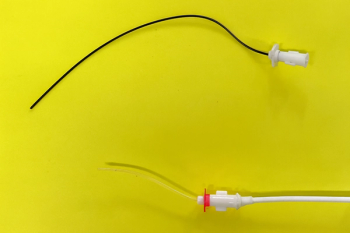
Presentation Recap: "It's OK to culture a free-catch urine sample," and other UA myths
Don't fall prey to 6 oft-repeated urinalysis myths.
Urinalysis is one of simplest, most-cost effective diagnostic tests at our disposal, says Julie K. Byron, DVM, MS, DACVIM, speaking at the CVC in Washington D.C. But, says Dr. Byron, practitioners should be aware of some common misunderstandings about urinalysis.
1. "A cystocentesis is dangerous, difficult, and requires an ultrasound for guidance." As with any procedure, practice makes it safer and easier, says Dr. Byron. With appropriate restraint and assistance, this is the most common method of collection we teach our students and perform ourselves. An ultrasound may help in patients with a small bladder, but in many dogs a "blind" cystocentesis can be successful and is less cumbersome.
2. "All cystocenteses have blood contamination." It is possible to have a small (0-10 RBCs/hpf) amount of blood contamination, says Dr. Byron, but it is rarely enough to be a problem, and blood contamination does not occur with most samples.
3. "It is OK to culture a free-catch urine sample." The results of a urine culture on a free-catch urine sample are really only useful if the culture is negative. If it is deemed positive, there need to be > 100,000 cfu/ml of bacteria to consider it positive. This also increases the incidence of culturing multiple organisms from the skin and distal urogenital tract.
4. "Storage of urine in the refrigerator should not affect the result." The storage of urine will lead to degeneration of casts and may lead to ex vivo crystal formation, both of which can be important in affecting diagnostic test accuracy. Practitioners need to be aware of these limitations. Examining the urine before sending it out will prevent missing these elements.
5. "There is no need to examine a urine sediment in-house if I am sending it off to a lab." See Myth #4 above.
6. "The leukocyte and specific gravity pads on standard dip strips are accurate in dogs and cats." They are not accurate in dogs and cats, says Dr. Byron.
Newsletter
From exam room tips to practice management insights, get trusted veterinary news delivered straight to your inbox—subscribe to dvm360.



